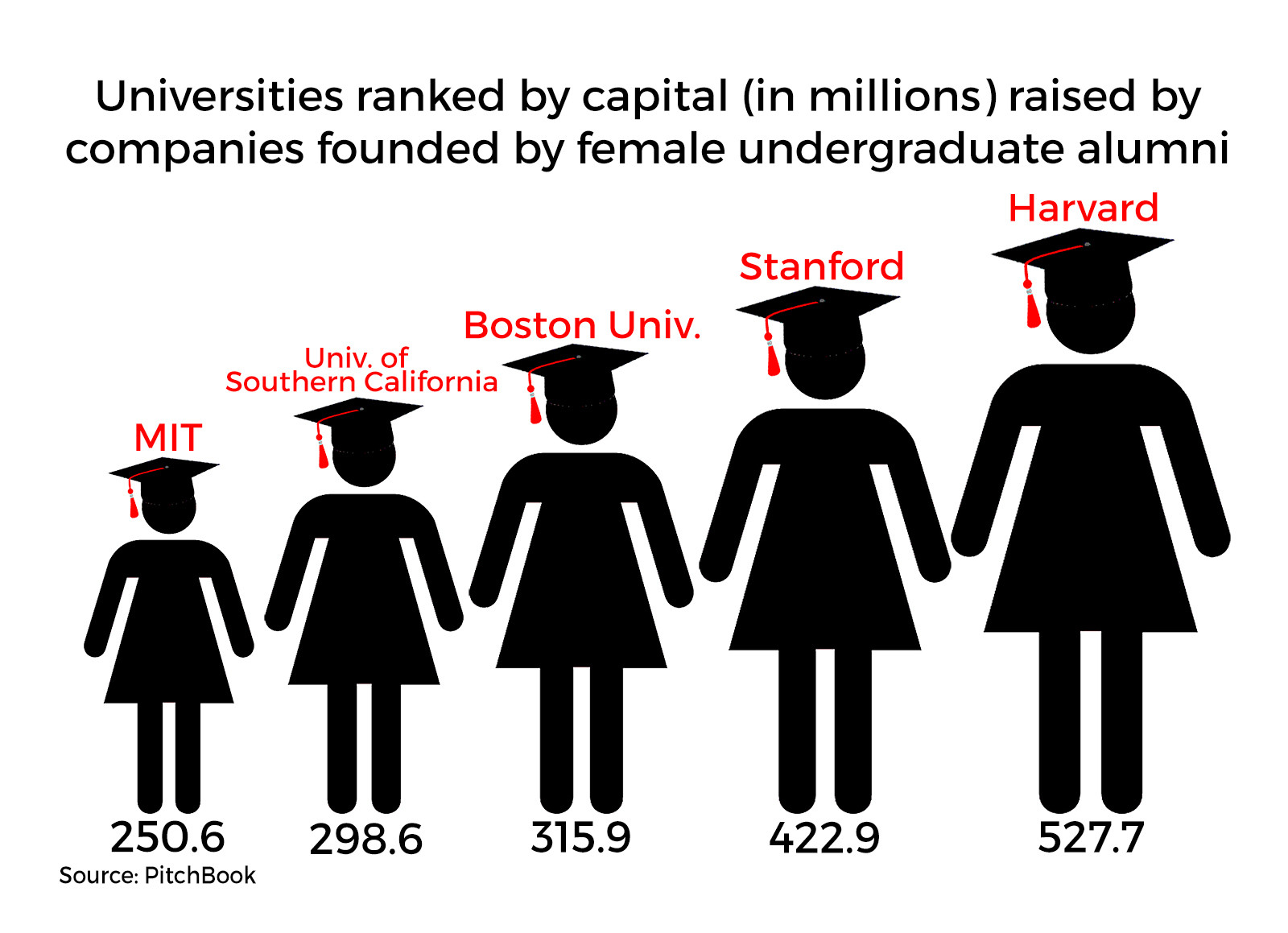
Companies owned by female Boston University alums accumulated a total of $315.9 million over the past five years, according to this year’s edition of PitchBook’s Universities Report. BU placed third in the report, which ranks capital raised by companies owned by female alumni.
Harvard University was ranked first, with $527.7 million in capital from female alumni-owned companies, and Stanford University second at $422.9 million. Massachusetts Institute of Technology placed fifth, at $250.6 million. The venture capital and private equity research firm looked at data from August 2010 to July 2015 to come up with its ranking, according to the report.
“There’s a fairly strong case to be made that often it’s not even the degree you graduate with but the personal connections you make in your time at school that determine your future,” the report stated. “Which professors you interacted with the most, which classmates you bonded with closely — the people you end up spending the most time with, in short, end up directing your path. For entrepreneurs this is especially true.”
Ian Mashiter, the director of entrepreneurship activities and a senior lecturer in the Questrom School of Business, said these results are not just representative of the business school, but of the entire university.
“It’s highly encouraging for the university that one, we’ve done so strongly in terms of the success of companies being founded, but that it reflects so well on our female entrepreneurs,” Mashiter said. “It’s BU as a whole that we should think about, not Questrom. The reason why BU [graduates] can start impressive companies is that we have all of these different disciplines and various expertise all over the college.”
Mashiter said BU’s faculty and extracurricular activities give students the ability to foster their entrepreneurial skills both on and off campus.
“There’s many dedicated faculty all over campus that are encouraging entrepreneurship and both teaching it in their curriculum,” Mashiter said. “There [are] a lot of options to learn about entrepreneurship in the classroom and there [are] a lot of opportunities to get help and advice from people outside the classroom, which is why we set up the BUzz Lab here to provide a focal point for that extracurricular activity.”
Producing only 22 venture capital-backed companies with female founders, BU did not make the top 10 list when the report highlighted universities producing the most number of female founded companies. Mashiter said there are numerous entrepreneurial activities on campus that produce both business-minded students and new ventures and firms.
“Our intent would be to be in the top 10 [for number of female-started companies],” Mashiter said. “We’re seeing plenty of examples of female entrepreneurship on campus and I’m sure they’ll be more great companies coming down the pipes.”
Several female Questrom students said the ranking reaffirms their confidence in the school’s entrepreneurial program, and they take pride in gaining national recognition.
Michelle Verkhoglaz, a freshman, said she is more excited to start her college career at BU in light of the report.
“[The report] shows that the education that women here are getting gets them more opportunities,” she said. “They’re able to earn higher wages because of the education.”
Madison Norman, also a freshmen, said she is glad that even as a first year student, the curriculum prepares her professionally for the future.
“[BU’s ranking] definitely reflects the atmosphere at Questrom. They make sure that everything we do is very formal and professional,” Norman said. “I’m already in a career management class that is pushing us to get LinkedIn’s and get connected.”
Arianna Mojdehbakhsh, a senior, said that she believes BU’s rank is due to the collaborative feel of Questrom.
“I don’t feel any sort of divide between female students and male students in the business school. I don’t think they overtly treat females as a protected class that needs to be supported,” Mojdehbakhsh said. “I think it’s all really fair game.”




















































































































